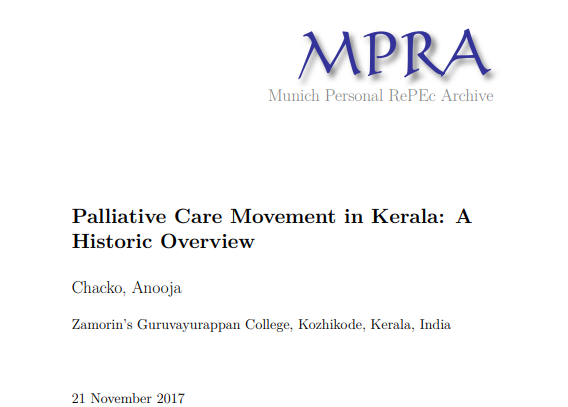This paper examines the conflicts and unintended consequences arising from diverse social conventions within transformative service systems. Using convention theory and a 10-year ethnographic study of a community-based palliative care initiative in Kerala, India, the authors propose a dialectical transformative service system framework. This framework synthesizes the calculative, conflict-ridden regime of justice and the noncalculative, altruistic regime of agape. The regime of justice is built on civic conventions at its core and supported by industrial, inspired, market, domestic, and fame conventions, whereas the regime of agape promotes selfless love and solidarity, transcending transactional relationships. The study enriches transformative service research by providing a micro-level understanding of disputes, their reconciliation, and the role of morality in service delivery, particularly within health and caregiving.
The study focuses on the community palliative care model in Kerala, which has achieved remarkable success in covering more than 60% of the state's population. The model, initiated in 1993 at Kozhikode Medical College, evolved into a transformative network supported by volunteers, community organizations, and public institutions. Key milestones include the establishment of the first satellite clinic at Manjeri in 1995, which introduced the hub-and-spoke model, and the formation of the Malappuram Initiative in Palliative Care in 2001, a governance body that facilitated resource allocation and standardized practices across community organizations. By 2008, the Malappuram initiative partnered with local self-governing institutions under the Pariraksha program, marking a shift toward cross-sector collaboration. These developments highlight Malappuram and Manjeri as critical sites for experimentation and the scaling of community care models.
Furthermore, the authors emphasize the transformative impact of Kerala’s community model, which integrates civic engagement, medical expertise, and cultural traditions. This model aligns with civic conventions of solidarity and justice, while managing conflicts arising from the involvement of ancillary conventions such as market and industrial standards. The Malappuram Initiative, in particular, demonstrates the role of governance and policy advocacy in bridging the gap between community needs and institutional support, while Manjeri’s hub-and-spoke approach laid the foundation for decentralized service delivery. Through this analysis, the study underscores the transformative potential of combining selfless caregiving (agape) with a calculated regime of justice, offering lessons for healthcare systems worldwide.




Comments
Post a Comment